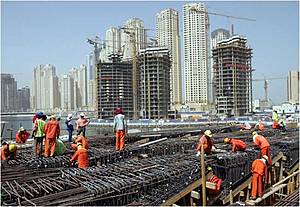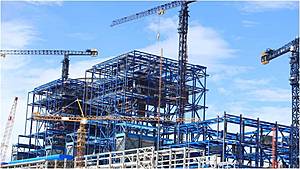RSB Urges Compliance with Standards to Support Sustainable Development of the Construction Sector

Works on a construction site
The building industry is a vital element of any economy and has significant impact on the environment. By virtue of its size, the construction sector is one of the largest users of energy, material resources and water, and it is a formidable polluter.
With respect to such significant influence of the building industry, the sustainable building approach has a high potential to make a valuable contribution to sustainable development. Sustainability is a broad and complex concept, which has grown to be one of the major issues in the building industry. The idea of sustainability involves enhancing the quality of life, thus allowing people to live in a healthy environment, with improved social, economic and environmental conditions.
A sustainable project is planned, designed, built, renovated, operated or reused in an ecological and resource efficient manner. It should meet a number of certain objectives: resource and energy efficiency; CO2 and Green House Gases emissions reduction; pollution prevention; mitigation of noise; improved indoor air quality; harmonization with the environment. An ideal project should be inexpensive to build, long lasting with modest maintenance, but return completely to the earth when abandoned.
In response to these impacts, Rwanda Standards Board adopted international standards addressing general principles for sustainability in building construction, sustainability guidelines on the application of the general principles in buildings and civil engineering works and sustainability indicators in building construction.

The following are general principles for sustainability in building construction:
- Continual improvement;
- Equity;
- Global thinking and local action;
- Holistic approach;
- Involvement of interested parties;
- Long-term consideration;
- Precaution and risk management;
- Responsibility; and
- Transparency.
RSB urges planners, designers, regulators, contractors, inspectors and all involved in the building industry to make use of the standards (RS ISO 15392:2008, RS ISO 12720:2014 and RS ISO 21929-1: 2011) covering General principles for sustainability in building construction, Sustainability guidelines on the application of the general principles in buildings and civil engineering works and Sustainability indicators in building construction respectively.
Building industry practitioners are invited to pay attention to controlling and correcting the environmental damage due to their activities. Architects, designers, engineers and others involved in the building process have a unique opportunity to reduce environmental impact through the implementation of sustainability objectives at the design development stage of a building project.